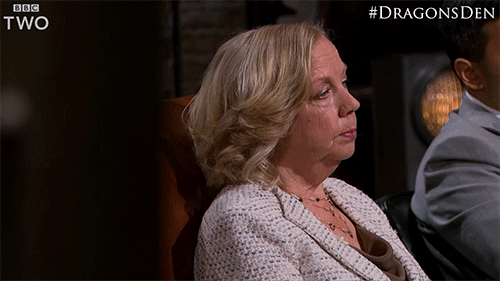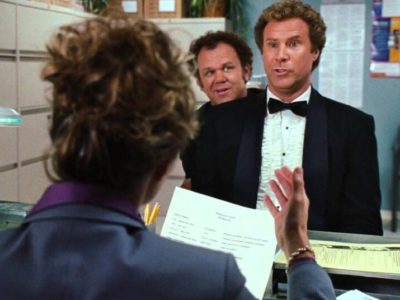Your interview date is fast approaching. If it goes well, you may even secure an internship at the company. You need this position to receive credit toward your degree and gain work experience. As you prepare, your heart skips a beat and your palms begin to sweat. How do you pitch your skills? How should you respond to tough questions? What should you wear? You’ve heard the horror stories. How do you not end up like them?
BUT WHERE DO I EVEN BEGIN to prepare for my interview?
Fortunately, you can learn how to conduct yourself during an interview by scheduling a practice session. For instance, Carol Anne Ketelsen, a consultant with Oakland University’s Career Services, regularly conducts mock interviews for students applying for jobs and internships. Taking on the role of a professional interviewer, she guides participants through the process and attempts to make them comfortable when answering questions about their resume or job skills. “We can help to take some of, you know, the jitters out,” said Ketelsen. Your school may offer them too, so make sure to take advantage of this.
To get the most out of mock interviewing, Ketelsen suggests that students should sit through a variety of simulations. In addition to in-person meetings, Career Services offers phone interviews, panel conferences and Skype sessions. If your university doesn’t have a platform for giving mock interviews, local employment agencies are a good place to check out for assistance with practicing. Some companies like Quicken Loans also offer interview and resume workshops for students.
WHAT ARE THEY EVEN LOOKING FOR in an interview?

One of the biggest keys to nailing a successful interview, Ketelsen said, revolves around researching the employer. “Know who they are, know what they do,” she said. “Do your homework…so if they ask ‘What do you know about our company’, you’ve got [the answer].”
According to her, interviewers will ask behavioral-based questions, such as “What has been your greatest challenge?” or “What are some of your team-player qualities?” They want to seek out candidates who are quick-thinking and resourceful. “They want to make sure that your thought process is the way they do work,” Ketelsen said.
No matter the question, Ketelsen recommends responding using the STAR format. STAR stands for situation, task, action, result. This technique will help you to answer the questions concisely and eloquently, while also serving as an effective platform to pitch your skills. To answer a question like “what makes you a team player” you would recall a situation where you worked with other people toward a common goal. Then you would explain the tasks you handled, describe in detail the actions you took to help the team be successful and summarize the positive results of your experience.
GREAT, BUT WHAT DO I WEAR to my interview?
https://www.youtube.com/watch?v=USnK7uvHUaI
Then there’s the issue of dressing professionally. “For women, it’s a lot more difficult,” Ketelsen said. “The earrings might be too big, the heels are too high [or] the skirt is too high.” But for guys, they just need to worry about shoes and socks. Although dress policy varies from company to company, you can be properly dressed by following a few basic rules. Professional dress for women, Ketelsen said, generally includes a business suit and a blouse with a moderate-length skirt or a pair of slacks. With men, she said a dress shirt and a blazer is appropriate for many workplaces; more formal environments prefer a suit and tie.
ANYTHING ELSE I should know before my interview?

Equally as important as wearing the appropriate outfit, Ketelsen said, is eliminating non-verbal mistakes. Some of these include messing with your hair or your tie. Buddy Henika, a college recruiter for Quicken Loans in Detroit, said that he observes some of these quirks when interviewing applicants in-person. “Seeing those things doesn’t deter me from hiring someone, but it’s something I take note of,” Henika said. “In general, [interviewees] are either too relaxed or too stiff.”
Because he conducts most of his interviews over the phone, Henika also pays close attention to an applicant’s voice. He said that he values those who use strong vocal inflections. “Give us high energy,” Henika said. “Act as if you’re going through the interview in person, even giving hand gestures as you speak.”
When recruiting on the Oakland University campus, he encouraged students to practice interviewing with career consultants. “Never go to a dream job and have that be your first interaction with an employer,” said Henika. “I can tell when students are practiced. They have a drive and are focused.” Coming into an interview polished and poised is critical because it assures recruiters like Henika that you’re the right fit for their organization. “At an internship or full-time job, they’re investing [in you],” said Ketelsen. So you want to make it worth their time, right?
Knowing what to expect and how to act can help to calm your nerves and loosen you up when the big day arrives. “Use your smile and show your friendliness to connect with them,” Ketelsen said. Having a warm personality, together with a firm handshake and rounds of practice under your belt, will give you the confidence you need for your next interview. Go in strong and your talent will shine through. You have the skills you need, so it’s time to conquer the world (and your interview).



















